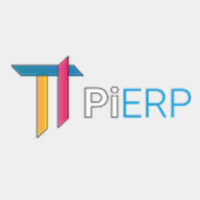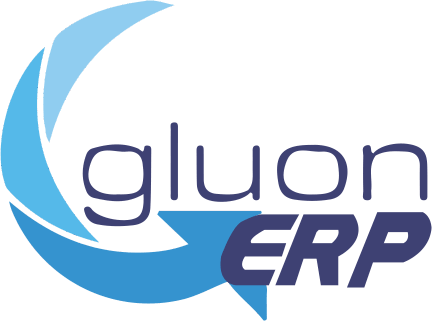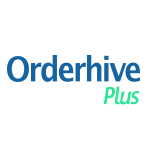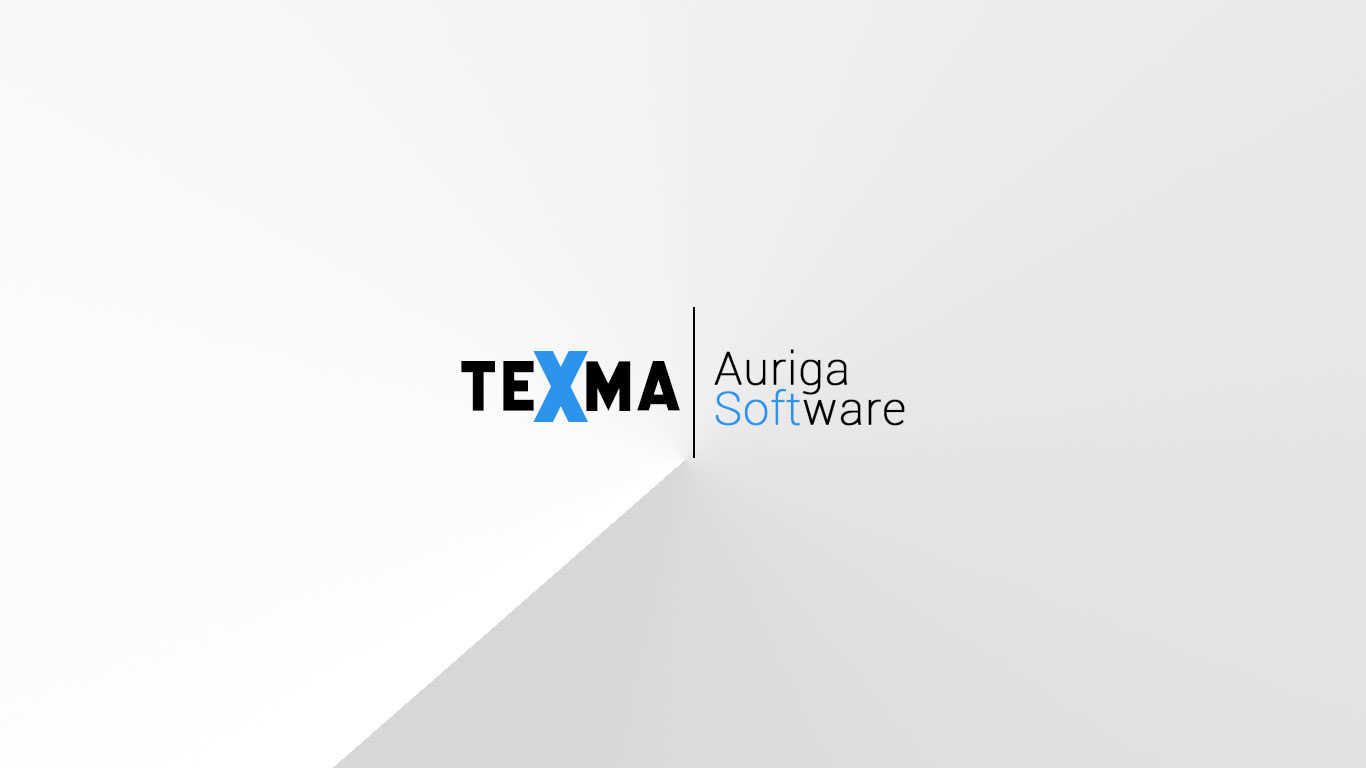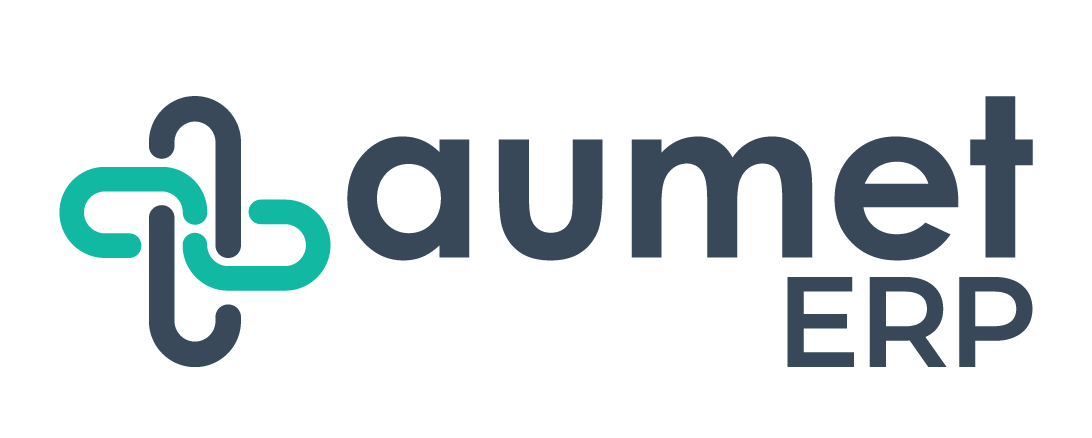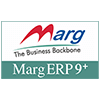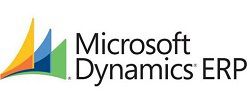What Is Enterprise ERP Software?
A complete company management system that unifies many corporate operations into a single, centralized platform is known as enterprise ERP (Enterprise Resource Planning) software. Numerous procedures, including as supply chain management, accounting, inventory control, customer relationship management, and human resources, are automated and streamlined by it.
Fundamentally, enterprise ERP software serves as an organization's digital backbone, enabling real-time information access and sharing across departments. As a result, there are fewer data silos, less manual data entry, and improved organizational cooperation and decision-making. The software offers a customizable solution to match the particular requirements of an organization by including many modules that are suited to particular business operations.
For instance, a retail company may use ERP modules for order administration and CRM, whereas a manufacturing company may use them for production planning and inventory management. By automating tedious procedures, enhancing data accuracy, and offering real-time insights into corporate operations, enterprise ERP software helps firms increase productivity, efficiency, and cost savings.
Additionally, it aids with risk management, market competitiveness, and adherence to industry rules. To make sure an enterprise ERP program fits your company's unique requirements, it is crucial to assess its features, scalability, deployment options, and integration capabilities. Making an informed choice will also be aided by taking the vendor's reputation, customer service, and price structure into account.
What Are The Recent Trends In Enterprise ERP Software?
Enterprise ERP software has changed significantly in recent years to keep up with the ever-changing business environment. ERP systems have advanced significantly in terms of simplifying corporate processes and boosting productivity, from conventional on-premise solutions to cloud-based implementations. To make the best choice for your company, it is essential for buyers to keep up with the most recent developments in business ERP software.
1. Cloud-Based Solutions: The move to cloud-based solutions is one of the biggest developments in enterprise ERP software. Compared to conventional on-premise installations, this model has a number of benefits, including affordability, scalability, and accessibility from any location at any time. To future-proof your company's IT investment, as a buyer, you should take into account the scalability and flexibility of cloud-based ERP solutions.
2. Artificial Intelligence (AI) And Machine Learning (ML): To automate tedious activities and enhance decision-making, numerous ERP suppliers are now including AI and ML capabilities into their software. In the end, these technologies assist businesses in making data-driven decisions by analyzing enormous volumes of data, finding patterns, and forecasting outcomes. To stay ahead of the competition and streamline your business processes, as a buyer, seek out ERP solutions with AI and ML capabilities.
3. Mobile ERP: As remote work has grown in popularity, so too has the need for mobile ERP solutions. These days, a lot of ERP providers include mobile apps that let users access important company information and do activities while on the road. Field service and sales staff that need to access ERP data while on the ground would particularly benefit from this trend. To guarantee easy access to vital information, take into account the functionality and availability of mobile apps when investigating ERP choices.
4. Integration With Third-Party Apps: Integration with third-party apps is another trend in enterprise ERP software. To handle many facets of their operations, including supply chain, accounting, and human resources, many companies employ a variety of software programs. These days, ERP manufacturers provide open APIs or pre-built interfaces that make it simple for companies to link their ERP system to other apps. To optimize your business processes, as a buyer, make an investment in a solution that provides smooth connection with other crucial software products.
5. User Experience: Businesses are now requesting ERP systems that are easy to use and intuitive due to the popularity of consumer-grade interfaces. In order to boost user adoption, ERP companies are reacting to this trend by redesigning their user interfaces and streamlining navigation. As a buyer, give preference to products with cutting-edge, user-friendly interfaces that need no assistance or training.
Benefits Of Using Enterprise ERP Software
A business management tool called enterprise resource planning (ERP) software provides a complete solution for integrating and overseeing all facet of an organization's operations. Accounting, human resources, supply chain management, customer relationship management, and other modules are included. An organization can gain a great deal from implementing ERP software, including increased productivity, process simplification, and overall growth. The main advantages of utilizing enterprise ERP software and how it may transform your company's operations will be covered in this buyer's guide.
1. Increased Process Efficiency: One of the main advantages of utilizing enterprise ERP software is the ability to automate and optimize operations in many departments. It makes it possible for information and data to move across various functions, doing away with the need for human data entry and lowering the possibility of mistakes. Additionally, ERP software provides real-time operational visibility, which aids in decision-making and lowers operating expenses for firms.
2. Centralized Data Management: All company data, including financial, sales, inventory, and customer information, can be found in a single database thanks to enterprise ERP software. This improves data accuracy, guarantees data consistency, and does away with the need for various data entry procedures. A centralized data management system enables organizations to have the current and accurate data they need to make wise decisions.
3. Improved Communication And Cooperation: Real-time access to data and information across departments is made possible by cloud-based ERP software. This encourages teamwork and removes obstacles to communication, which facilitates idea sharing, information sharing, and progress monitoring. Better decision-making, higher production, and general corporate expansion are all influenced by improved communication and teamwork.
4. Cost Savings: Businesses can save a lot of money by implementing enterprise ERP software. Businesses can lower labor costs and operating expenses by streamlining procedures, decreasing manual data entry, and increasing efficiency. Additionally, companies can find and remove bottlenecks with increased data visibility and accuracy, which lowers costs and boosts profitability.
5. Scalability: Enterprise ERP software is made to accommodate companies' expanding requirements. ERP software can grow with businesses as they go, offering the assistance they need to manage more activities and a larger workforce. This makes it possible for companies to stay competitive and quickly adjust to shifting market needs.
6. Better Customer Service: ERP software helps companies to enhance their customer service by integrating customer relationship management (CRM) modules. Businesses can quickly and efficiently handle client needs thanks to its full picture of consumer data, purchase history, and communication history. Increased client loyalty and satisfaction eventually fuel company expansion.
Important Factors To Consider While Purchasing Enterprise ERP Software?
The performance of your company may be impacted by a number of crucial elements to take into account when investing in enterprise ERP software. The following are the most important factors to think about before making this important choice:
1. Business Needs: Assessing your company's needs and goals is the first step in choosing the best ERP software. Determine the key procedures and domains such as supply chain, human resources, or financial management where ERP could be most beneficial. This will assist you in reducing your possibilities and selecting a system that supports your objectives.
2. Scalability And Flexibility: Your ERP system should be able to easily adjust and grow as your company expands and changes. It's critical to take into account both your company's current size and its anticipated future expansion in order to make sure the software can adapt to your evolving requirements.
3. User-Friendliness: Employees from several departments utilize ERP software, and not all of them may be tech-savvy. To reduce the learning curve and boost acceptance, look for a system with an intuitive user interface and simple navigation.
4. Integration Capabilities: Accounting, HR, CRM, and other applications should all be able to easily integrate with your ERP system. This will give you a single perspective of your business operations, avoid data silos, and save time and effort.
5. Customization Possibilities: Every company has different needs and procedures. Verify that the ERP software you select can be tailored to meet your unique requirements. By doing this, you can make sure that the system benefits your company rather than the other way around.
6. Security And Compliance: It is essential to give security and compliance features top priority because ERP systems handle important business data, such as financial and customer information. To safeguard your company and client information, look for software with strong security measures, data encryption, and compliance certifications.
7. Assistance And Training: The software vendor may need to give assistance and training for the implementation and use of ERP software. Inquire about the various training and support solutions to guarantee a successful and seamless implementation.
8. Entire Cost Of Ownership (TCO): When choosing an ERP program, the entire cost of ownership must be taken into account. This covers the price of the program as well as any related expenses for deployment, support, training, and upgrades. Seek out a solution that fits your budgetary limits and provides a high return on investment.
9. Vendor Reputation: The success of your ERP implementation depends on your choice of trustworthy and dependable vendor. Before choosing a vendor, look at their past performance, check client testimonials, and take into account their background in your sector.
10. Future Upgrades And Support: To maintain the smooth and effective operation of your system, ERP software updates are necessary and regular. To keep your ERP system current and operating at its peak, make sure the vendor provides frequent upgrades and continuing support. You may choose an ERP program that suits your company's requirements and positions you for expansion and success by taking these aspects into account. To determine which choice is best for your company, take the time to investigate and weigh your possibilities.
What Are The Key Features To Look For In Enterprise ERP Software?
Potential customers should consider a few essential aspects while looking for enterprise ERP software. These characteristics can assist them in identifying the software that best suits their objectives and business requirements. The following are the primary features of enterprise ERP software to look for:
1. Customization And Scalability: Since each company is different, the ERP software should be adaptable to the particular requirements and procedures of the company. It should also be scalable as the company expands and changes.
2. Capabilities For Integration: A good ERP program should be able to interface with various programs and systems that the company uses. This guarantees smooth data sharing and communication, which boosts productivity and efficiency.
3. Sturdy Reporting And Analytics: Data must support business decisions. Seek out an ERP program with sophisticated reporting and analytics features that offer insightful information about the organization's performance.
4. User-Friendly Interface: An ERP system that is complicated and challenging to use might cause annoyance and reduce productivity. Choose software with an intuitive user interface so that staff members may easily learn and use it.
5. Mobile Compatibility: The ability to use ERP software on mobile devices is essential in the fast-paced business world of today. For ease of use, look for software that offers mobile apps and is compatible with a variety of devices.
6. Security Features: Since the software contains important corporate data, security ought to be a primary concern. Choose an ERP program with strong security features like user access controls and data encryption.
7. Customer Support: Because ERP software implementation and use can be complicated, dependable customer support is crucial. Seek out a software supplier that provides prompt and effective customer assistance. Businesses can invest in enterprise ERP software with more knowledge if they keep these important factors in mind. To determine which choice best suits the needs of your company, don't forget to do extensive research and weigh your possibilities.
Why Do Businesses Need Enterprise ERP Software?
To increase efficiency, streamline and optimize internal operations, and achieve overall growth and success, businesses require enterprise ERP software. An organization's departments and procedures are integrated by an all-inclusive software solution, which offers a consolidated platform for controlling and keeping an eye on crucial business operations. Let's examine in more detail the particular justifications for why enterprise ERP software is so important to companies.
1. Effective Resource Management: Enterprise ERP software enables companies to efficiently manage their inventories, human capital, and commodities. It helps firms cut expenses, enhance resource allocation, and avoid waste with capabilities including personnel management, supply chain management, and inventory tracking.
2. Streamlined Processes: By automating and streamlining procedures, this software removes the need for laborious manual labor. It makes it easier for departments to collaborate and communicate with one another, guaranteeing a steady flow of data and information. This results in increased productivity, fewer mistakes, and quicker reaction times.
3. Real-Time Insights: Enterprise ERP software helps firms make data-driven choices by offering real-time insights and reports. Businesses may now access accurate and current information at any time since it does away with the requirement for manual data entry and data reconciliation.
4. Improved Client Experience: By giving companies a comprehensive picture of client interactions and preferences, this software helps them to enhance the customer experience. This makes it possible for companies to provide individualized services, cultivate relationships with clients, and raise client happiness.
5. Compliance And Security: Organizations may guarantee adherence to industry rules and protect their private information by utilizing enterprise ERP software. It offers data encryption, role-based access control, and other security features to safeguard company data and processes.
6. Scalability And Flexibility: As a firm grows, enterprise ERP software is made to be flexible and grow with it. It is a long-term investment for companies because it gives them the freedom to add new features and modules in accordance with their needs.
How Much Time Is Required To Implement Enterprise ERP Software?
The complexity of the software, the size of your company, and the degree of customization needed can all affect how long it takes to adopt enterprise ERP software. However, the average time to completely integrate an enterprise ERP solution is between six months and two years. Planning, data migration, system configuration, testing, staff training, and final deployment are the typical steps in the implementation process.
The entire implementation timeline may also be impacted by how long each step takes. Setting a realistic timeframe, identifying important stakeholders, and defining the business objectives are all critical during the planning stage. Depending on the degree of cooperation and decision-making required, this phase may take one to two months. Since it entails moving data from old systems to the new ERP solution, data migration is yet another crucial step in the implementation process.
This stage can take two to three months on average, depending on the volume and complexity of the data. Depending on how much customization is needed, system configuration which entails adjusting the software to your organization's unique requirements can take three to six months. Before the ERP software is finally deployed, testing is an essential step to make sure it is functioning as planned and that any problems have been fixed.
Depending on the system's complexity, this phase may take one to two months. Depending on the size of your company and the number of employees that require training, employee training another crucial component of the implementation process can take one to two months.
What Is The Level Of Customization Available In Enterprise ERP Software?
Depending on whatever enterprise ERP software you use, there can be significant differences in the degree of customisation offered. The majority of enterprise ERP software provides a significant degree of customisation, enabling companies to adapt the program to their own requirements and workflows. Data fields, processes, reports, and user permissions should all be customizable with enterprise ERP software, at the very least.
These characteristics enable companies to modify the program to suit their particular operations, size, and industry. Additionally, more sophisticated enterprise ERP software might provide dashboards that can be customized, document and form templates, and application connection. Because it streamlines procedures and gives users a customized experience, this degree of personalization can significantly increase productivity and efficiency for enterprises.
The balance between standardization and flexibility must be taken into account when assessing the degree of customisation available in enterprise ERP software. Too little modification might reduce the software's usefulness, while too much can create a complicated and challenging-to-maintain system. Before making a purchase, it is advised to talk with the software vendor about your unique requirements and modification requests. This will guarantee that the program has the modifications required to efficiently support your business operations.
Which Industries Can Benefit The Most From Enterprise ERP Software?
An effective tool for managing resources, streamlining operations, and increasing overall productivity is enterprise resource planning (ERP) software. Although practically any sector can benefit from ERP software, several industries stand to gain the most from its use.
1. Manufacturing Sector: Because of its intricate and ever-changing processes, the manufacturing sector stands to gain a great deal from ERP software. Manufacturers can efficiently manage their production, inventory, and supply chain operations with ERP. This lowers inventory costs, shortens manufacturing cycle times, and boosts overall productivity.
2. Retail Industry: ERP software has the potential to revolutionize organizations in the fiercely competitive retail sector. Retailers can use it to efficiently manage their sales, inventory, and customer data, giving them the information they need to make wiser business decisions. Retailers may enhance their planning and forecasting using real-time data, which will improve inventory control and boost consumer happiness.
3. Healthcare Sector: The healthcare sector handles private patient data and necessitates effective resource management. Healthcare facilities can streamline patient data, appointment scheduling, and billing procedures with the use of ERP software. Improved patient care may result from less administrative work and more accurate patient data.
4. Construction Industry: Construction projects need managing a number of vendors, subcontractors, and deadlines. Construction organizations can use ERP software to handle every part of their projects in a single, centralized system, from scheduling and budgeting to inventory and procurement. Better cost control and project management may result from this.
5. Professional Services Industry: Time tracking, project management, and billing are critical components of professional services organizations, including consulting firms and law firms. By automating these procedures, ERP software can increase accuracy and efficiency. Better decision-making is also made possible by the insights it may offer regarding project profitability and resource usage.
Conclusion
It is evident from a thorough analysis of the best enterprise ERP software solutions that choosing the appropriate ERP software for your company is essential to its success. In addition to automating and streamlining essential business operations, it offers insightful data and analytics to support well-informed decision-making. When selecting an ERP program, there are numerous aspects to take into account, ranging from its pricing, scalability, and functionality to its support services and integration possibilities.
To choose the software that best suits your demands, you must evaluate your company's needs and thoroughly examine each program's features and functionalities. When choosing an ERP program, some important factors to take into account are its capacity to manage intricate procedures, facilitate operations involving multiple companies and currencies, and easily interface with current systems.
Since every organization has different needs and procedures, the software's degree of customization and adaptability is also crucial. Furthermore, it's important to consider the software vendor's level of support and training. Selecting a vendor that provides first-rate training and customer support is essential to guaranteeing a seamless software installation and continued use.
To sum up, enterprise ERP software is an effective instrument that can revolutionize and enhance your company's operations. You may increase productivity, streamline procedures, and boost overall business performance by carefully weighing your options and choosing software that supports your goals. For a successful installation, don't forget to evaluate your business needs, take into account all the important criteria, and pick a reputable software provider.


